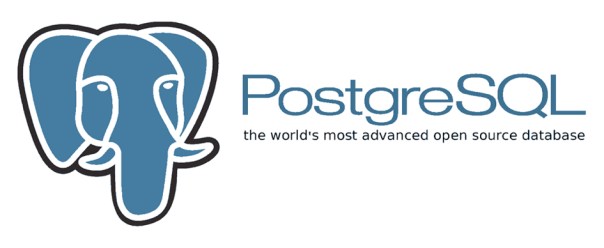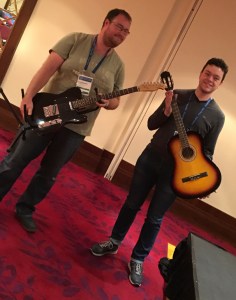#DOAG2016, the largest Oracle Community gathering in Europe. Taking place in Nuremberg, at the Nuremberg Convention Center NCC, one of the more impressive places to hold such a conference, towering 4 stories high, with a big central atrium!!
It is a huge effort to get all of this together!
In this blog-post I want to highlight some of the crazy things I experienced this week… And… I did try to follow my own schedule, but I wasn’t overly successful.
Young talent
One of the things that was somehow quite clear this week, is that we have a lot of young talent out there, eager to learn and share experiences. It is not just the #NextGen “movement” of DOAG, of which Carolin Hagemann made me aware, but just young people on the conference itself.
Discussing “Young PL/SQL” at the unconference session made us all aware that our part of the IT trade is no very sexy and popular with the youngsters. This all despite what was mentioned above. In universities we train SQL, but we don’t train to create real-life business applications, leveraging the power of the one language that keeps SQL close to the data it feasts on, PL/SQL. But, more on that below (Thick Database Paradigm).
To promote PL/SQL, basically two ground requirements were defined:
- Create a free ‘PDB as a Service’ for schools;
- Inspire teachers to talk about data centric computing
By finding somebody to be regionally or globally owner of this quest, it should be possible to get young professionals as familiar using PL/SQL for creating performant and business-ready applications as they were familiar using Microsoft Excel to do their accounting “back in the days”
ACE program
“There is a disturbance in the force!”
For everybody not acquainted with the Oracle ACE Program by the Oracle Technology Network… You should be!! Please read up, as it is an incredible cool initiative.
The disturbance, you ask?
Well, to retain your “status”, Oracle expects you to do “stuff” and this “stuff” is then evaluated on a yearly basis. Basically the initiative, the disturbance, is to get some transparency in “the stuff”. And, as always, everybody wants change, but few actually are good at “change”. There are rimples and things that change, but in the end; everything will be fine, unless, obviously, when it will not be fine.
Talks
I was honored to (co)host to talks at #DOAG2016:
Bad Boys of Replication – Changing everything…
With Oracle ACED and good friend Björn Rost, about an intense migration project we did some time ago. We were even offered to host our talk in Tokio, the biggest hall at DOAG!
Saving lives at sea at an industrial scale using Oracle Cloud Technology
An insightful (at least I like to think so) talk with my colleague Oliver Limberg. The talk is about the rapid development of a global portal for the maritime logistics branch.
I had a blast, and I hope you did too!
Community spirit
Oracle User Group conferences are about sharing and are about fun. Mr. Martin Widlake wrote a good post about that.
Apart from all the “more formal” things that happened, there were quite a few extracurricular activities, mostly involving an Irish Pub or a restaurant.
This all may sound quite funny and exciting, and, yes, it is alto talk with your co-workers: “Oh, hey, you are going to have fun and party all week!” Of course it is not a drag and a bore, but it has very profound function!
Whenever you run into trouble, these are the exact same people that are not only able, but probably also inclined to help you out, as you would help them out, as friends do among each other. In the end, they, you, your boss and your clients benefit. This is not to be underestimated too much.
The extra, special bit, that DOAG offers are the so called “unconference sessions”.
Not scheduled, no slides, nothing official, just getting together and discussing subjects of interest. Our “Young PL/SQL” was one of these “unconference session”, which turned out to be a great (and valuable) success!
Meeting people
Just to name a few, heroes of long and of yet to come for #DOAG2016:
Dietmar Neugebauer
Frank Dernoncourt
Joel Kallman
Johannes Ahrends
Kamil Stawiarski
Laurent Leturgez
Maja Veselica
Marcel Hofstetter
Piet de Visser
Sabine Heimsath
Stefan Kinnen
Stew Ashton
Uwe Hesse
Zoran Pavlovic
And alle the ones I forget to mention here!!
Thick Database Paradigm
Noting new in IT…
Well, no.
The Thick Database Paradigm (opposed to the “No PL/SQL Paradigm”) is nothing new. We have actually all been doing this since the eighties. Program your business rules, your constraints, everything that makes sure that your data is all that you want it to be, close to that data.
There are so many reasons that speak in favor of this approach that it is nearly overwhelming and deserves at least a book in itself. But, let me make a small attempt to highlighting a few here:
- spare yourself network bandwidth, by not sending data all over your network to be processed
- safeguard your data inside the (Oracle) database, so it can be protected by all that has been invented to do so
- Transact data where it lives and combine and aggregate it there, you will be amazed by the efficiency
- Remind yourself why you used to think “business logic in middle teer” was a good idea
If you leave possibile religious believes aside, there is no other conclusion possible then that the reinvention of “Thick Database” is the (re)discovery of 2016, right from the time when IT still made sense.
Yes, there are cases where an “Enterprise Service Bus” makes sense, but, as with every technology withing IT, it has a very specific area where it actually adds value or even makes sense. At best, a lot less than all the places where it is used currently!
Not to get carried away in this joyful blog-post, I will leave this topic at this.
The end
I hope to see you at the next Oracle User Group conference, somewhere… Please watch for the asterisk at his page for the conferences that I will attend.

















